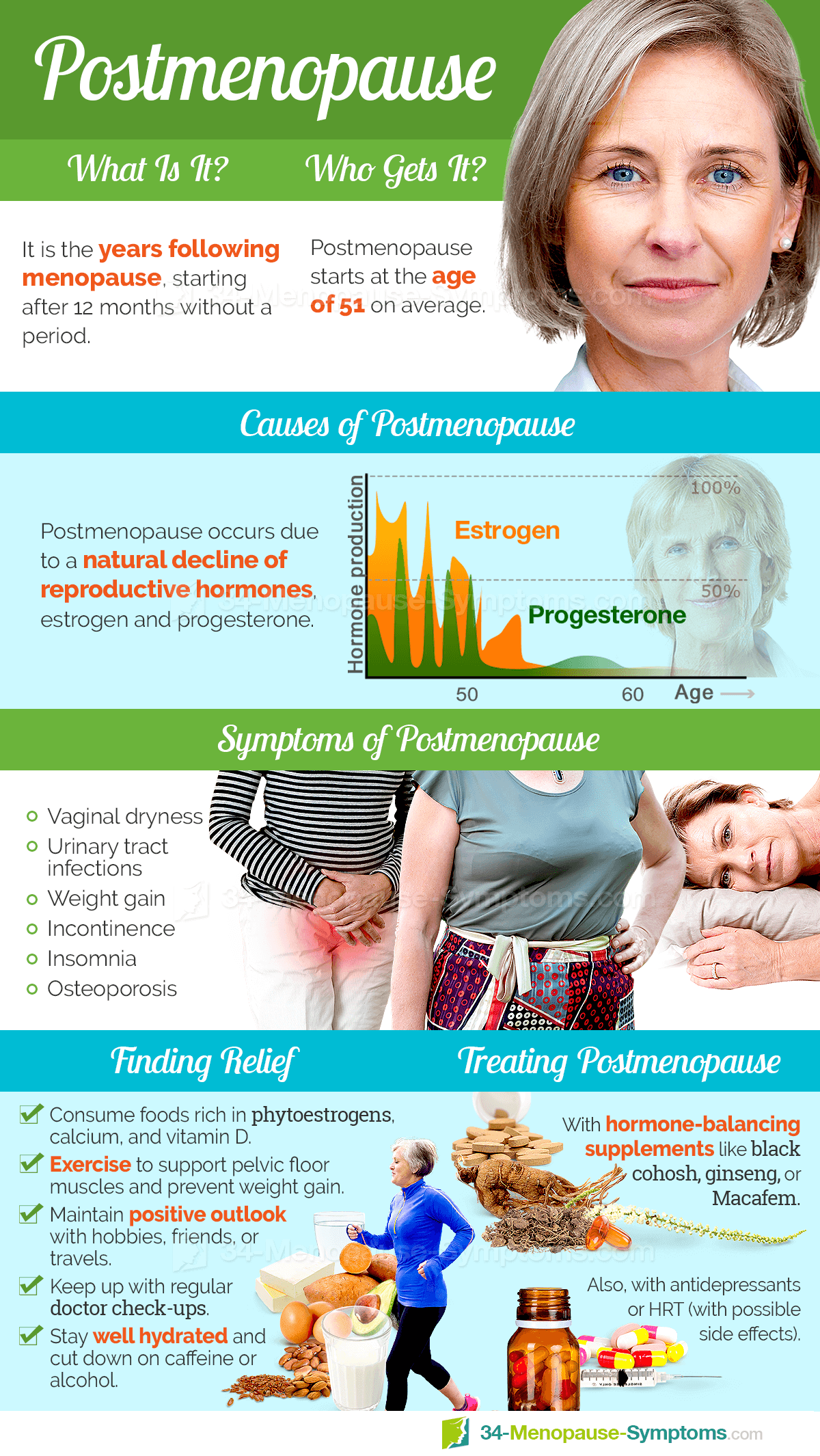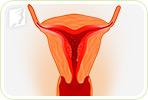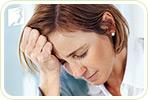Postmenopause is the time after a woman's menstrual periods have ceased for 12 consecutive months. Women may have some questions about what to expect during this time in their lives, and this site seeks to provide answers.
Keep reading to discover more about the difference between postmenopause and menopause, the hormones involved, the symptoms, and how to treat them.
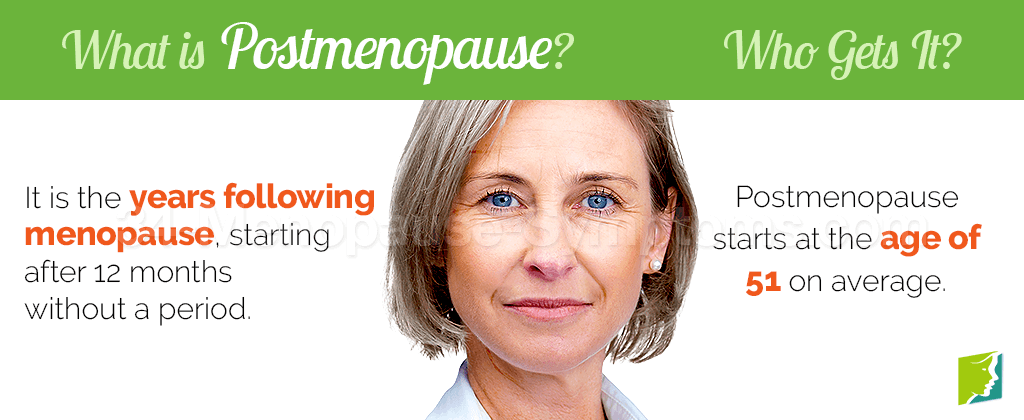
About Postmenopause
Postmenopause is defined as the time after the menopause transition has been completed. Technically, a woman is postmenopausal from the day menopause occurs until the end of her life.
Postmenopause vs. menopause
Doctors define menopause as the day when a woman has not menstruated for 12 consecutive months. After this point, a woman is postmenopausal. In the years just before menopause, a woman is considered to be perimenopausal.
Average age of postmenopause
Of course, all women experience these natural changes differently, so there is a wide age range at which women first become postmenopausal. Natural postmenopause (as opposed to induced menopause) usually occurs sometime between a woman's late 40s and early 60s, with the average postmenopausal age being 51 years old.
One of the most important tests for postmenopausal women to take is a bone density screening test, which helps determine the levels of calcium in bones. In this way, women can take timely action to prevent osteoporosis, a condition related to postmenopause.
Click on the following link to read more about postmenopause, or keep reading to learn about the causes of postmenopause.
Postmenopause Causes
Postmenopause is caused by the same hormonal changes that drive the whole menopause transition. This is a natural process that all women go through. The causes can be categorized by internal and external factors, as shown below.
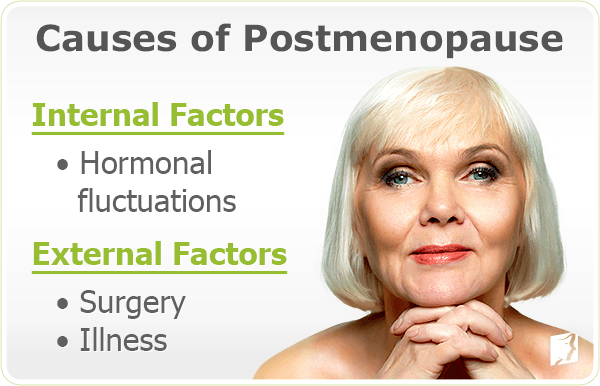
- Internal factors. Fluctuations in hormones like estrogen and progesterone are at the foundation of postmenopause and usually occur naturally.
- External factors. These are less common but can cause hormonal changes that lead to postmenopause, too. The main ones are related to lifestyle habits, stress, surgery, and radiation or chemotherapy.
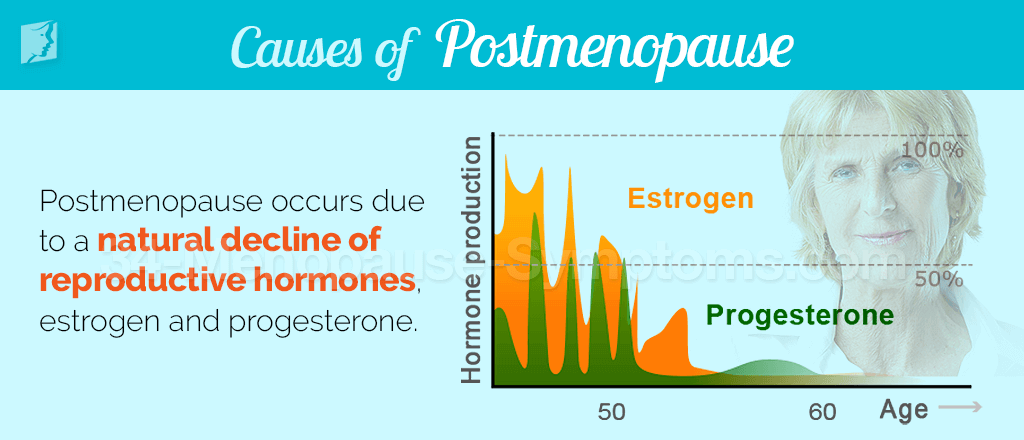
The hormonal changes that cause postmenopause are complex and can be more than a bit confusing. Click on the following link to learn more about the causes of postmenopause, or continue reading to discover the symptoms of postmenopause.
Postmenopause Symptoms
Often, women think that all the uncomfortable symptoms associated with menopause disappear once postmenopause begins. This, however, is not always the case. The symptoms some women experience during their postmenopausal years can be very similar to those they have already had during perimenopause.
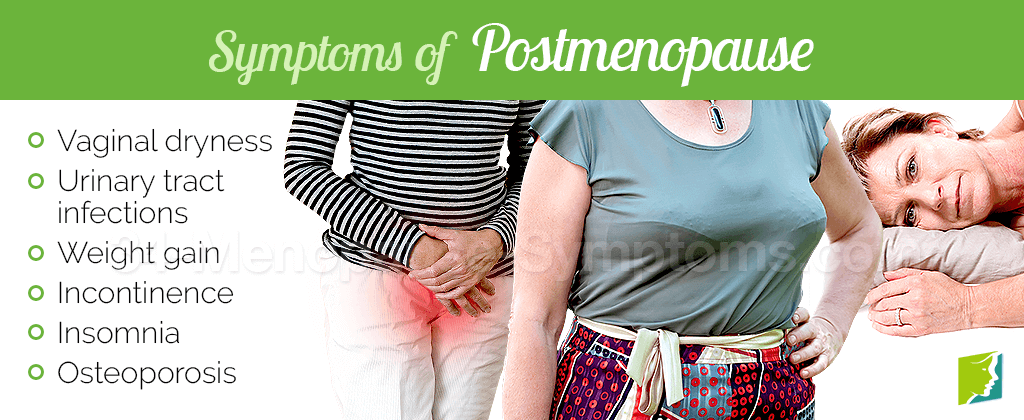
Other uncommon symptoms that normally disappear in the first years of postmenonpause are vaginal bleeding and hot flashes.
In combination with the symptoms mentioned above, postmenopausal women should be aware of the heightened risk of developing osteoporosis and high blood pressure once they enter postmenopause.
Please click on the following link to learn more about all the postmenopause symptoms, or continue reading to learn about different treatments for the symptoms.
Postmenopause Treatments
Treatment for postmenopause symptoms can vary, and there are three distinct levels of treatment intensity. These are as follows:
Lifestyle changes
These can include adjustments such as reducing stress, exercising more frequently, and eating a balanced diet rich in calcium and other essential nutrients.
Alternative treatments
Ranging from acupuncture and massage to more common herbal remedies, many women find that combining these with lifestyle changes can have a significantly positive impact on their symptoms and well-being.
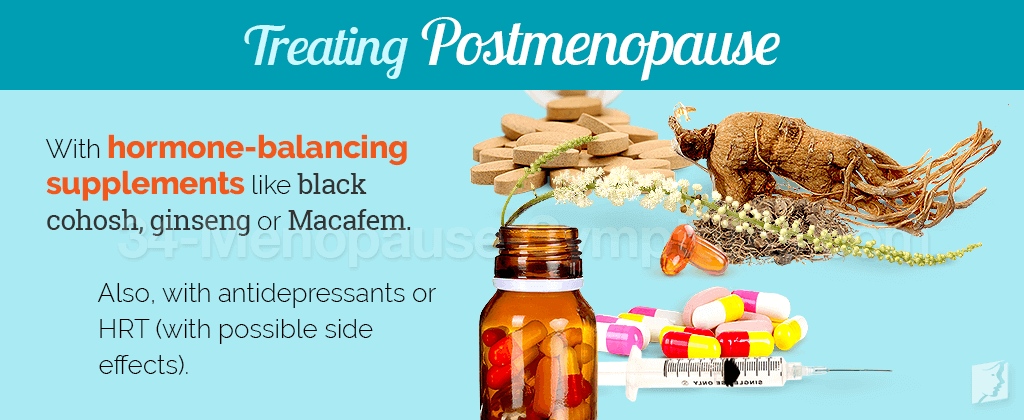
Prescription medications
This is the most common form of treatment in the United States and usually involves some form of hormone replacement therapy (HRT). Though HRT has been effective at relieving symptoms, it also carries a number of serious risks and side effects.
Women might need to experiment with their treatments before finding one that works for their symptoms and lifestyle, but many women find that a combination of lifestyle changes and alternative medicine provides results. Click on the following link to learn more about the different treatments for postmenopause.
Sources
- Love, S. (2003). Menopause and Hormone Book. New York: Three Rivers Press.
- University of Maryland Medical Center. (2015). Menopause. Retrieved April 1, 2016, from http://umm.edu/health/medical/altmed/condition/menopause

